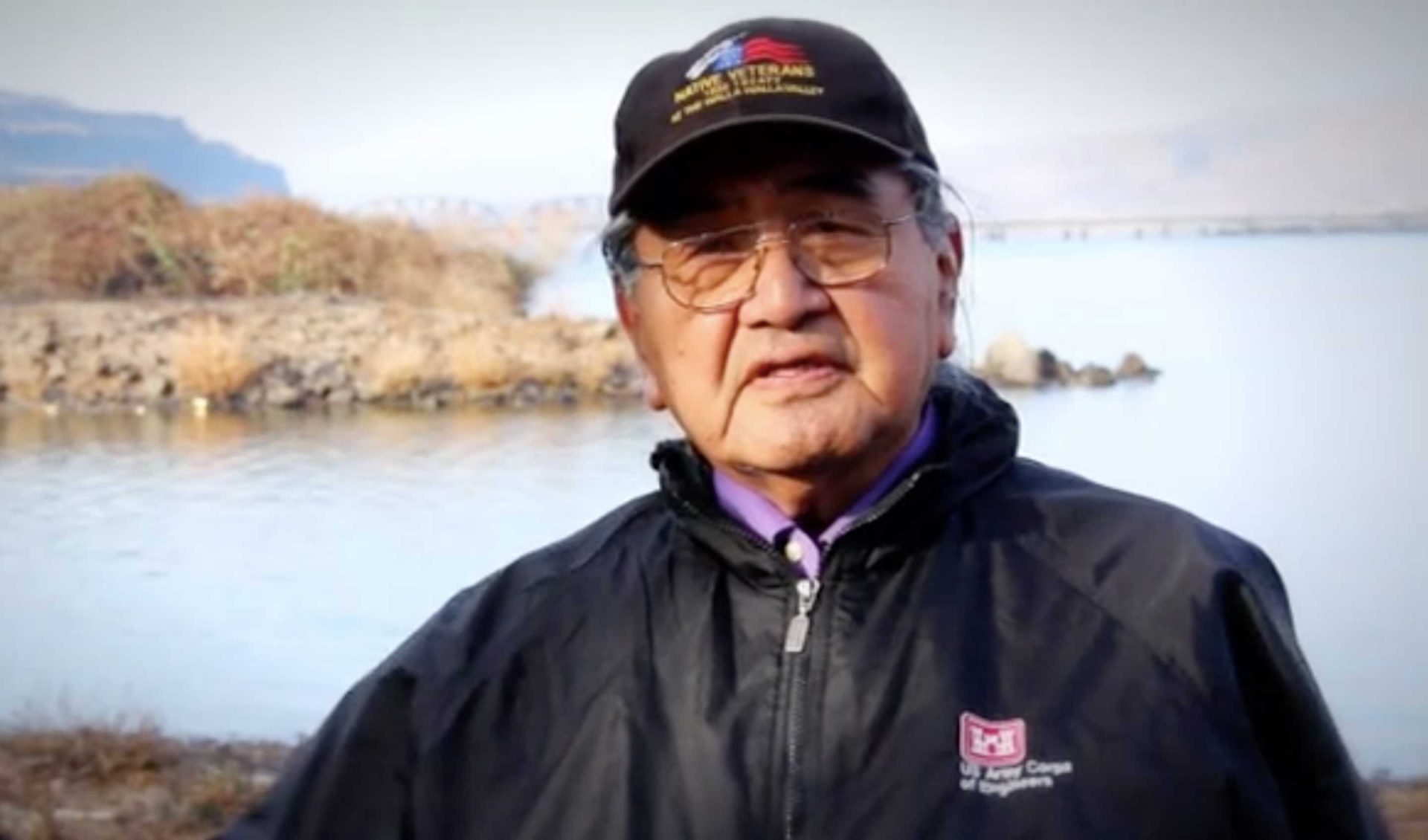I used to fish when I was a kid; catch trout and bring them home so they could cook them. When I was little, I saw guys go to the river with a hook, and then they’d bring back fish, and then they’d cook them right off. There was always the huckleberry time to go and stay and hunt at the same time. There was always drying of meat. That was the way it was until allotments came and treaties came, and then we had to rely on the other services that were available to provide us with some food.
I had an uncle, Sam Minthorn, who went to high school in Culdesac, Idaho, where he grew up. Then he went to Haskell Boarding School in Kansas and later graduated from Kansas University. After that, he went on to work in Washington, D.C. That’s where he was when World War II started. They had just built the Pentagon, and so he went to work in the Pentagon as a cartographer. That’s what he would tell me. He was a mapmaker. He called me “Tony Okinawa.”
In the summertime, when vacation came, he would come home by train all the way across the United States and come right down through Thorn Hollow to Pendleton. That’s how he came back. Then he’d go back the same way. All the years that he was working in D.C. and before air travel came, it was always by train. In those days, Indians could not buy liquor on the reservation. Kind of like Prohibition time. It was like that. But because of his work, he had access to all that kind of stuff and could drink a beer or whatever any time he wanted. My uncle learned what golf courses were about; about those lounges and restaurants in those golf clubs. He knew all about it because of his travels. He was also a drum player and came home with records of swing jazz.
Back on the reservation, there’s this road—Market Road, they call it—that connects to I-84. One time when Sam came home, he was driving all of us kids on the back of the flatbed truck, bouncing along the gravel road. Then we came to a wheat field. He stopped and looked out to that field and said, “There should be a golf course here. There should be a golf club here.” That’s what he was thinking about because he could see all the activities that those kinds of facilities could have here. You know, lounge meals and drinks and whatever; people relaxing and getting together.
So that’s what he always said. And I always remembered that over the years when I grew up and became part of Tribal leadership. It took a lot of years, but look at all we built: the Wildhorse Casino and Hotel and all kinds of economic development. These days, I come up to the hotel to have lunch. I look out at the casino floor where all the machines are and the people are playing. I’m sitting there, and I see workers mingling around. Some are Tribal members, but many are not; they come from the wider community. And I think, “We did this. We built that thing he was talking about way back then. It’s right here. We built a golf course in the same wheat field where he said it should be.” I was thinking back, and I wondered what he’d say if he could come back now and see what we did. How his dream came true. Golf course and golf club facilities and hotels and all the stuff that he saw back then are built today. We built an economy. We built this economy.
To me, all of this is what I call a win-win. The Tribe benefits and so do Tribal members. But so does the wider community also. We built this economy for all of us, and the Tribe isn’t going anywhere. We’re here. So how can we all benefit from this? I think we need to work harder to better understand this. You respect my rights. I’ll respect your rights since you’re here, too. And then you get to that win-win. And when you get to that win-win, you become one. Together.

